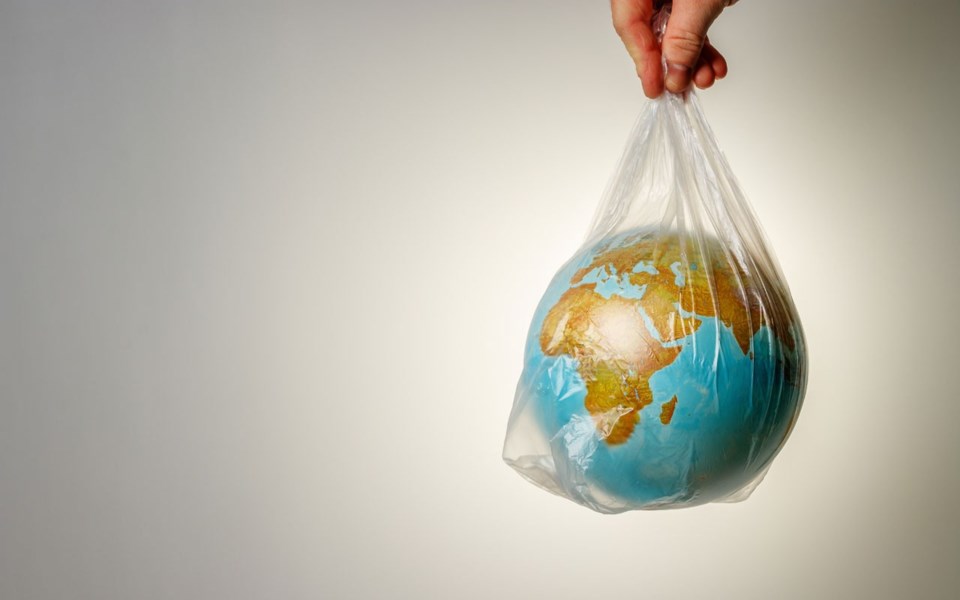Last December, the Resort Municipality of Whistler (RMOW) was in full-blown crisis mode.
A letter it sent to leading oil companies—calling on them to take financial responsibility for "climate-related harm" (while simultaneously boasting about the 3-million people who visit the resort annually)—had gone viral, resulting in a deluge of negative stories, columns and letters from people who viewed the stunt as deeply hypocritical. A highly successful resort that relies on fossil-fuelled international travel was lecturing the industry that makes its existence possible?
In an interview with Pique during the outcry ("Whistler climate-change letter draws ire of fossil-fuel industry," Dec. 20, 2018), Whistler's newly elected mayor, Jack Crompton, acknowledged the letter was "tone-deaf" and pledged to do better when it comes to responding to climate change.
The key, he said, should be to act at the local level. "You'll hear me say this often going forward: We must act locally," he said.
While discussed against the backdrop of climate change, it seems that this position would logically extend to other environmental initiatives—including a long-called-for ban on plastic bags.
At this point, a move away from them seems inevitable. Just last year, delegates at the Union of B.C. Municipalities Convention passed a resolution calling on the province to prohibit plastic bags and major jurisdictions, including the province of Prince Edward Island, are in the process of doing just that.
Moreover, there is a growing vanguard of municipalities across North America that are taking action themselves. Yet despite the trend, there seems to be little interest among Whistler council—which routinely touts its environmental bona fides—to join them.
Mountain towns like Whistler are particularly well suited to take a stand on plastic bags, and many have already done so. In March, Jasper introduced a ban, following a host of Colorado mountain towns that have already done so, including Telluride, which introduced its ban back in 2011.
Moreover, just down the highway, Squamish municipal council recently voted to ban both plastic bags and straws by the end of 2019, responding to a delegation of Howe Sound Secondary and Squamish Elementary students concerned with their impact.
In spite of this, Whistler council appears content to sit on the sidelines (perhaps hoping the sense of shame we feel every time we ask for one is enough to make us stop).
Even Councillor Arthur De Jong, a celebrated environmentalist who handles Whistler's environmental portfolio, recently told Pique ("Close-your-doors campaign pounds the pavement," Feb. 28) that it would be shrewd to take a "look before you leap" approach to a ban, rather than follow communities such as Victoria, which passed its plastic-bag ban in 2017 and subsequently faced a lawsuit from Big Plastic.
Yet, surely De Jong and the rest of council recognize that that challenge—brought on by the aptly-named Canadian Plastic Bag Association—was dismissed by the B.C. Supreme Court last summer (days before it was to take effect), with Supreme Court Justice Nathan Smith ruling that the bylaw works because municipalities have the power to regulate business transactions.
The win has been touted by Victoria's mayor, Lisa Helps, who is urging other municipalities to follow suit. "This isn't just a victory for the City of Victoria, it's a victory for cities, because cities do have very limited powers," said Helps, in an interview with CBC.
In Victoria alone, the ban is estimated to keep 17 million plastic bags out of landfill on an annual basis. One can only imagine how many Whistler's 3 million annual visitors produce.
Instituting a ban would, of course, involve some smart planning on the front-end—and perhaps some discomfort on the part of business owners looking for quick, seamless interactions with tourists.
But at this point, it's the right thing to do, not to mention something there is widespread support for. A 2011 survey of 250 residents and visitors carried out by the Association of Whistler Area Residents for the Environment (AWARE) found that 85 per cent would welcome such a prohibition. That number has likely grown in the intervening years, as recognition of the harmful impact of single-use plastic has intensified.
Reflecting on the climate change debacle at his six-month mark ("Crompton reflects on first six months in office," April 11), Crompton said that while he feels that the sentiment of the climate-change letter was right, the execution was all wrong.
"It's crucial that our town respond to receding glaciers and hotter, drier summers," he said. "I want to be able to look my kids in the eye when they're 30 and say I participated in the response. I didn't stand on the sidelines."
Agreed—and one could say the same things about plastic bags, which pile up in our landfills and landscape and could easily be prohibited with some bold leadership.




